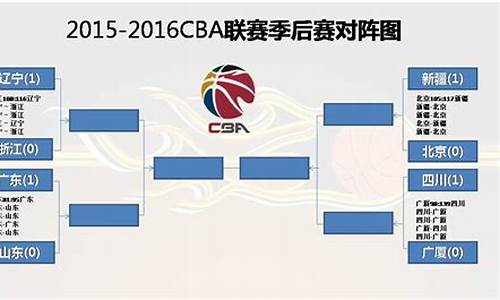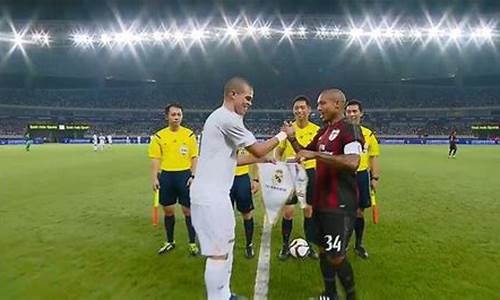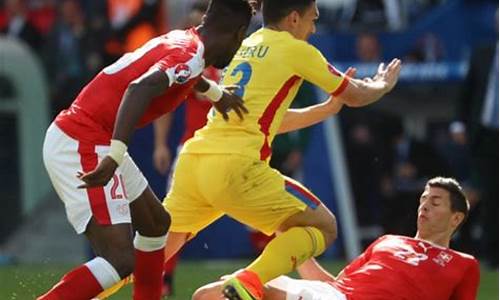您现在的位置是: 首页 > 专题报道 专题报道
CBA联赛排名站点-cba联赛目前排名如何
tamoadmin 2024-08-27 人已围观
简介1.正版耻辱1怎么把汉化补丁加进去?2.关于新人教版八年级下册物理和英语方面的资料或站点?正版耻辱1怎么把汉化补丁加进去?方法步骤:首先将下载的解压到根目录运行。选择游戏所在目录进行安装。使用导入方式汉化,无卸载程序用于还原英文。登陆后右键点击你的游戏,接着选择属性然后选择测试一个先拉菜单会出现。等待几分钟游戏升级,当更新完毕后,耻辱1汉化补丁会出现在你的游戏库里。关于新人教版八年级下册物理和英语
1.正版耻辱1怎么把汉化补丁加进去?
2.关于新人教版八年级下册物理和英语方面的资料或站点?
正版耻辱1怎么把汉化补丁加进去?

方法步骤:
首先将下载的解压到根目录运行。
选择游戏所在目录进行安装。使用导入方式汉化,无卸载程序用于还原英文。
登陆后右键点击你的游戏,接着选择属性然后选择测试一个先拉菜单会出现。
等待几分钟游戏升级,当更新完毕后,耻辱1汉化补丁会出现在你的游戏库里。
关于新人教版八年级下册物理和英语方面的资料或站点?
完形填空
A
Mr Smith had a new telephone number, 1 he got it, it was the 2 of a shop. Now the 3 had a new telephone number, but a lot of women didn’t know this, so they still 4 the old one. At first, Mr and Mrs Smith always said: “We are sorry, you he the 5 number. The shop has a new 6 now.” But some 7 still kept on telephoning them to ask for things. So after some time, Mr and Mrs Smith began to 8 them like this: “Good morning, what do you want us to give today?” Because they thought maybe they may stop telephoning to them when they didn’t get 9 things. But this doesn’t 10 Mr and Mrs Smith, because women began to telephone more and more. They often said angrily, “where are my things?”
1.A. Before when B. C. After D. By the time
2.A. telephone B. number C. house D. woman
3.A. family B. telephone C. shop D. place
4.A. wanted B. asked C. got D. used
5.A. new B. wrong C. right D. other
6.A. room B. it C. one D. that
7.A. families B. telephones C. shops D. women
8.A. answer B. speak C. tell D. say
9.A. his B. our C. her D. their
10.A. call B. help C. work D. give
B
Sam is the gatekeeper(守门人) of a big factory in a city. Every day, many people stop at the 1 , and some of them ask him, “What’s the 2 , please?”
After 3 months, Sam says to himself, “I’m not going to 4 all those questions. I’m going to a 5 and buy a clock. Then I’m going to put it up 6 the wall.” He buys a clock and puts it up on the wall.
“ Now people aren’t going to stop and 7 the time any more,” he thinks. But after that, a lot of 8 stop every day, look 9 the clock and ask, “Is that clock 10 ?”
1.A. door B. gate C. wall D. bike
2.A. date B. day C. time D. clock
3.A. a few B. little C. a little D. any
4.A. ask B. answer C. say D. talk
5.A. shop B. school C. factory D. farm
6.A. in B. at C. with D. on
7.A. tell B. ask C. answer D. know
8.A. farmers B. teachers C. workers D. students
9.A. at B. on C. to D. for
10.A. good B. right C. nice D. yours
C
Aunt Wang is twenty-there years old. She lives on the ninth floor in a 1 building in the 2 of the city. She lives with her 3 . Her father and mother are both doctors. They work in the same 4 . Aunt Wang works in an office. Every morning she and her parents get into the 5 and lee their home at a quarter past seven and get back 6 at about ten to six.
Aunt Wang works very 7 in the office. The office is about three hundred meters from the building. So she goes there on foot.
She has 8 friends in her office. They often come to her house to 9 her. Sometimes they all go to the park near 10 office on foot.
1.A. small B. long C. short D. tall
2.A. middle B. back C. front D. side
3.A. friends B. drivers C. parents D. doctors
4.A. factory B. hospital C. school D. farm
5.A. lift B. car C. room D. ladder
6.A. family B. home C. build D. house
7.A. busy B. free C. easy D. hard
8.A. only B. no C. many D. much
9.A. play B. go C. see D. watch
10.A. their B. our C. your D. his
D
Do you know Mr King? He and his wife work in the 1 office. She works harder than he does and so she is the 2 of their office. The man has to 3 her. But when they get home, the woman always feels 4 and doesn’t want to do anything. He does 5 of the housework. He does some cooking, washing and cleaning. And their children think his 6 is delicious.
It’s Saturday today and they don’t go to work. Mrs King 7 some friends to dinner. Now they’re talking in the sitting room. And Mr King is busy in the kitchen(厨房). They say he’s a 8 cook, too. It makes the man 9 .
“ I’m abler(能干的) than her,” said Mr King, “but her spouse(配偶) is abler than 10 !”
1.A. different B. same C. small D. their
2.A. teacher B. worker C. head D. hand
3.A. look at B. look after C. wait for D. listen to
4.A. tired B. hungry C. full D. free
5.A. little B. some C. most D. light
6.A. flowers B. vegetable C. fruit D. food
7.A. asks B. tells C. makes D. brings
8.A. bad B. good C. quick D. slow
9.A. sorry B. hy C. careful D. clear
10.A. them B. me C. mine D. ours
E
It is a good idea to 1 a small present when you go to a 2 party in England or the USA. Flowers are always nice, or you may bring a bottle of wine 3 you know what the family 4 . You should arrive in time or 5 minutes late. Don’t get there early. If you are going to be there 6 fif minutes later, you should call and tell the host and hostess(主人).
Try to relax(放松) at the dinner table. If you don't know 7 to use the fork and knife, or the spoon, just watch 8 and follow them. You can also ask someone next to you. If you like the food, say so. Of course, You’ll thank the host and hostess 9 the meal and for their kindness. It’s a good idea to send a card or thank-you note the 10 day.
1. A. bring B. take C. carry D. move
2. A. breakfast B. lunch C. supper D. birthday
3. A. when B. if C. so D. as
4. A. eat B. eats C. drink D. drinks
5. A. five B. ten C. five to ten D. one to five
6. A. less than B. more than C. about D. for
7. A. why B. how C. what D. when
8. A. other B. the other C. others D. the others
9. A. for B. of C. at D. about
10. A. last B. tomorrow C. next D. later
F
In England, people don’t like 1 very much. You can go on a bus, 2 on a train, and people just sit looking 3 the window, they often read. They read books and papers. But they don’t talk 4 . When you meet English people, they often talk about one thing, 5 . So when you meet 6 in England, you should say, “Nice weather 7 the time of year!” “But it was 8 cold yesterday.” Someone may answer. “Well, it will get a bit warmer later!” you can say. Talk 9 this, and the English will think, “How 10 you are!”
1. A. laughing B. going about C. talking D. playing
2. A. or B. and C. either D. but
3. A. form B. through C. at D. out
4. A. much B. a bit C. a little D. sometimes
5. A. the food B. the work C. the time D. the weather
6. A. a man B. a woman C. everyone D. someone
7. A. at B. in C. on D. for
8. A. much B. not C. a bit D. more
9. A. with B. in C. like D. for
10. A. hy B. funny C. friendly D. careful
G
Different countries he different food. If you go to 1 , you may find 2 fish and chip shops along the 3 . Fish and chips is the 4 popular take-away food in England. People often 5 this kind of food at shops, 6 sometimes they put the food 7 paper bags and tale it 8 or to their workplace.
Chinese take-away food is also 9 in England, Australia and the USA, but the most popular take-away food in the USA 10 fried chicken. It’s very delicious!
1. A. Australia B. China C. England D. the USA
2. A. few B. no C. much D. many
3. A. roads B. streets C. ways D. rivers
4. A. very B. most C. quite D. more
5. A. he B. sell C. put D. taking
6. A. for B. so C. but D. too
7. A. on B. away C. into D. out of
8. A. home B. office C. house D. school
9. A. different B. cheap C. delicious D. popular
10. A. was B. were C. is D. are
H
One morning Bob left his house with six donkeys(驴子) to 1 to toe town. After a time, he got tired and 2 on one of the donkeys. He counted the donkeys, and there 3 only five, so he got off and went to look for the sixth. He looked and looked but 4 it, so he went back to the donkeys and counted them again. This time there were six, so he got on one of them again and they all 5 .
After a few minutes, he counted the donkeys again, and again there were only five. At that time, a friend of his passed(路过). Bob 6 to him, “I 7 my house with six donkeys; then I had five; then I had six again; and now I 8 only five. Look ! one, two, there, four, five.”
“But, Bob,” said his friend, “You 9 on a donkey, too. That is the sixth. And you 10 the seventh!”
1. A. go B. went C. were going D. will go
2. A. get B. is getting C. got D. has got
3. A. are B. were C. has D. had
4. A. did not find B. did not look C. not look D. not found
5. A. start B. started C. will start D. are starting
6. A. say B. is saying C. said D. says
7. A. left B. lee C. am leing D. leing
8. A. he B. had C. am hing D. will he
9. A. sit B. are sitting C. sat D. will sit
10. A. will be B. were C. be D. are
I
Dick did not live too far away from school, so he liked to 1 to school every day. On his way to school he always went past(经过) a playground. When it rained, like many other boys, Dick liked playing in the water. One afternoon when the boy came 2 , he was all wet. His mother became very angry, and said: “ 3 play in the water after school.” The next day he was very 4 again, and his mother became 5 angrier. “I’ll tell your father 6 you go to play in the water again.” She said. “And then he’ll punish(惩罚) you.” The 7 day the boy was 8 when he came back from school. “You are a good boy today.” His mother said, “You didn’t play in the water.”
“No,” he answered, “ 9 there were so 10 older boys in the water. I couldn’t play in it.”
1. A. go B. walk C. fly D. come
2. A. house B. family C. home D. room
3. A. Don’t B. Can’t C. Mustn’t D. Doesn’t
4. A. dry B. late C. early D. wet
5. A. very B. more C. too D. even
6. A. if B. before C. for D. so
7. A. first B. second C. third D. fourth
8. A. dry B. wet C. tall D. short
9. A. So B. Or C. If D. Because
10. A. many B. much C. more D. most
J
Tom is a worker. One of his feet is bigger than 1 . He can’t find the right shoes 2 his feet. His friend, Jim, says to him, “Why 3 you go to 4 shoemaker? A good shoemaker can make you the 5 shoes.” 6 Tom goes to the shoemaker near Jim’s home. Very soon the shoemaker makes him 7 . Tom 8 the shoes and he is not hy. He 9 the shoemaker, “You aren’t a good shoemaker! I want you 10 me one shoe bigger than the other, but you make me one shoe smaller than the other!”
1. A. the other B. other C. another D. others
2. A. of B. about C. to D. for
3. A. hen’t B. don’t C. doesn’t D. aren’t
4. A. an B. a C. the D. /
5. A. right B. hey C. good D. wrong
6. A. And B. Or C. But D. So
7. A. shoes of pair B. a pair shoes C. a pair of shoes D. a pair shoe
8. A. looks for B. looks at C. looks after D. looks like
9. A. says to B. speaks C. tells to D. talks
10. A. makes B. to make C. making D. make
K
More than one hundred years ago, there 1 a great French scientist 2 the name Ampere(安培).
One day, Mr Ampere went out for 3 in the street. There were 4 people and much traffic there. But all this was nothing to him. He was thinking about a maths 5 . He had no paper with him. 6 could he work it out? Then he saw a blackboard 7 him. He quickly walked up to it. He 8 a piece of chalk and wrote his problem on the blackboard. Then he started 9 on it. The blackboard moved a little, but he did not notice(注意) it. The blackboard moved on, and Mr Ampere walked after it. Then he walked faster and faster. At last he stopped 10 .
What did he see? Why the “blackboard” was not a blackboard. It was the back of a carriage(四轮马车).
1. A. is B. was C. are D. were
2. A. with B. call C. he D. of
3. A. shopping B. a lesson C. a walk D. school
4. A. a lot of B. much C. a lot D. few
5. A. book B. question C. homework D. problem
6. A. What B. How C. When D. Why
7. A. in front of B. at the top of C. at the foot of D. next to
8. A. bought B. took out C. needed D. borrowed
9. A. to answer B. to read C. to work D. to think
10. A. to he a rest B. to he a walk C. to he a test D. to he a look
A: 1-5: ABCDB 6-10: CDADB
B: 1-5: BCABA 6-10: DBCAB
C: 1-5: DACBA 6-10: BDCCA
D: 1-5: BCDAC 6-10: DABBC
E: ADBCC BBDAC
F: CADAD DACCC
G: CDBBA CCADC
H: ACBAB CAABD
I: 1-5: BCADD 6-10: ACADA
J: 1-5: ADBBA 6-10: DCBAB
K: 1-5: BACAD 6-10: BABCD








